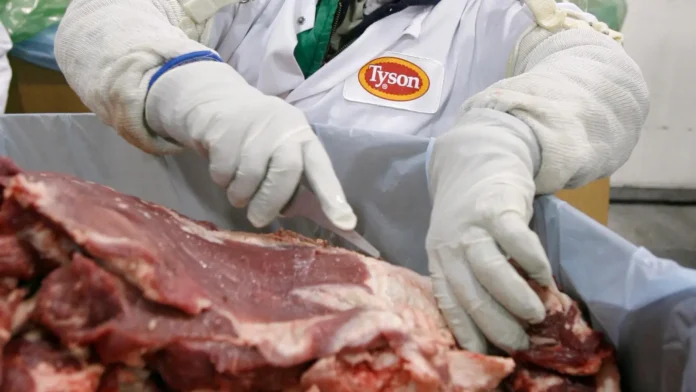The planned closure of a Tyson Foods beef plant in Lexington, Nebraska, is a “gut punch” to the small city where it employs nearly one-third of the population and threatens to undermine the stability of the U.S. cattle industry.
The plant, which slaughters 5,000 head of cattle daily, employs 3,200 people in a city of 11,000. Its closure in January will force workers to uproot their families or face unemployment, devastating a community that was revitalized by the plant’s arrival in 1990. “The economy in Lexington is based in Tyson,” said a local pastor, as churches began offering counseling and food pantries.
Nationally, the move reduces U.S. beef processing capacity by 7-9%. This comes at a precarious time for ranchers, who are already grappling with falling cattle prices and high costs. The situation is compounded by President Trump’s decision to slash tariffs on Brazilian beef, which could further depress the market for American producers.
“This is a lack of confidence in the industry right now,” said a ranchers’ advocate, noting producers are unwilling to invest in expanding their herds. While consumers may not see immediate price spikes, the long-term reduction in domestic processing capacity could push record-high beef prices even higher. The closure signals a major restructuring of the beef industry, leaving a reliant town and national ranchers to face an uncertain future.
By James Kisoo



















